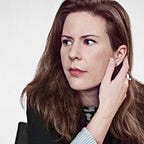Healing for Collective Determination
I’m on a road trip through the U.S. South with Adrianne Burke, founder of Yoga on the Land. This post is from one of our stops.
It’s no secret that my time in New York made me miss the South. It’s a complicated kind of feeling I have for the region, understanding its problems and also the way that it is looked down upon, misunderstood and written off by many people in the Northeast. So on this trip, I’ve been visiting some of the places where people are creating spaces for collective welfare, natural resource protection, and community ownership.
We visited some magical land in southern Mississippi, about an hour inland from the coast. The All You Need Institute purchased 111 acres of undeveloped land close to DeSoto National Forest, and thanks to the connection of a mutual friend, we were able to camp there for a weekend.
My friends and I were introduced to the ecosystem of this coastal pine forest by one of the naturalists who owns the land. Jordan Bantuelle took us on a forest tour, tasting edible flora, tiptoeing around tortoise burrows, and explaining the life cycles of the pine forest. The highlight for me was an enchanting path through the “lichen forest’’, a sandy expanse of tiny, tree-like organisms that are not quite plant, not quite fungi.
We chose the lichen forest as the site for our yoga practice the following day, posting up on a patch of pure white sand with our mats. I lead a few rounds of chanting, a harmonizing practice that fuses the pleasure of singing with the benefits of breathwork and visualization. It felt good to vibrate in this sacred space full of ancient creatures.
The friend who was with us, Lauren, is the same friend who helped me put together a business plan for my dream of a collective space for organizing and wellness. The concept is a jointly-owned, multi-unit rental property — a “b-corp” — that subsidizes public access to a space for meetings, workshops and retreats at the intersection of community organizing and community wellness.
I put that plan together during my 2019 sabbatical in Thailand. I told the people I trusted about it when I got back, but I never got braver than that. Until now, and I am beginning here. Building the kind of deep and transformative community that I want to see requires vulnerability, so I’ll practice it.
We went to New Orleans after the visit to All You Need’s land, and I made a trip to the New Orleans Healing Center. I came across it doing research for my business plan, and I was curious to see it in real life. I didn’t know quite what to expect, but I was inspired as I walked into the central hall filled with sculptures and altars to New Orleans’ unique pantheon of orishas and patron spirits. Here, under one roof, a person could go to a physical therapy appointment, browse books in the free community library, pick up groceries from the food co-op, get a haircut, visit the herbalist at the botanica — it’s the good things about a mall with the focus flipped to the local community and what supports its healing and wellness.
Of course, projects like these bring up important questions about “who is the local community?” This center opened up after Katrina in a devastated neighborhood that used to be almost entirely Black. A combination of gentrification and disaster capitalism have almost completely shifted the neighborhood demographics. I think it’s important to acknowledge these systemic harms and strive to play a role in countering them, and it seems the NOHC may be practicing that balance.
The All You Need Institute in Mississippi is a different model trying to find a similar kind of balance. They’re attempting to make ecosystem conservation and wildland management sustainable through educational tours, wellness workshops, and primitive camping. When I visited, I met some queer Black people who’d driven up from New Orleans, at the communal dinner table. Creating spaces where they feel safe to relax and enjoy the beauty and harmony of nature is a precious and sacred act.
Community organizing and community wellness are both practices that need to be accessible in order to be transformative. I know that’s a table I can’t set alone, and I’m beginning to see how my willingness to be vulnerable to criticism, to take the risk of being in relationship with collaborators, to be accountable to a community — those things are the point of doing it at all.
